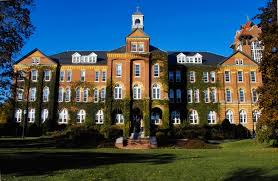How many and which colleges should I visit?
When building a college list or making decisions of which colleges to visit, and we see this all the time,many students will rely on what their friends tell them and even make decisions randomly without doing the proper research.
While the college you attend will not necessarily make the difference between succeeding in life or not, it can certainly impact your trajectory. By taking control of your future and investing the effort ahead of time to identify colleges that will provide you with the proper resources and opportunities to set you up for success in life would be time well spent.
So how many colleges should you plan to visit and see in person?
Well, this depends on various factors such as your academic profile, interests, geographical preferences, and budget. Visiting too many colleges can be overwhelming and time-consuming, while visiting too few would limit your ability to gather enough information to make optimal decisions.
A good rule of thumb is to visit at least three to five colleges that meet your academic and personal criteria. This would give you a good sense of what you will want in a college and help you make informed decisions about where to apply. One caveat here is that if you are interested in colleges that evaluate demonstrated interest then you should consider visiting those colleges as well as not doing so could impact your likelihood of admission.
It is also important to note that not all families have the resources or time to visit colleges in person. In such cases, virtual tours and online resources can be a helpful alternative.
What academic criteria should a student be considering when deciding which colleges to visit?
It is useful to consider a variety of academic criteria to ensure that the colleges you end up visiting are likely to be a good fit given your academic goals. Here are a few criteria for your consideration:
Majors and programs
- You should research the majors and specific programs offered at each college to ensure that the academic opportunities they offer align with your own interests and goals.
Faculty
- A great thing to do when thinking about which schools to visit is to learn about the quality and qualifications of the faculty at these colleges to ensure that you will have access to knowledgeable and experienced professors who can provide you with a strong academic foundation. Rate My Professors offers a great tool to see how students feel about their experiences with their professors.
Class size
- Research the average class sizes at each college you are considering to ensure that you will receive the personalized attention and support you will need to succeed academically.
Research opportunities
- If research is your thing, then you should consider the research opportunities available at each college, such as formal undergraduate research programs and research facilities. Look to see if the schools you are interested in are designated as R1 research universities which are generally the universities that receive the most funding to pursue research. Also, review the research that individual faculty members are pursuing in your major area of interest as these may represent future research opportunities for you.
Academic support services
- It is helpful to research the academic support services available at each college, such as tutoring services and academic advising, to ensure that you will receive the necessary support to succeed academically. At most schools, support services tend to focus on the core required courses at the lower levels. Look to see if your colleges provide more formal support services for the higher level courses that you will be taking once you enter your major.
Overall, looking at each of these elements will ensure that you are choosing colleges that will offer you the academic opportunities and resources you will need to be successful academically.
What personal criteria should a student be considering when deciding which colleges to visit?
Here are a few personal criteria that you may want to consider:
Location
Understanding the location and setting of each college is important. Many students have distinct preferences for the type of environment they will be in and you may be no different. Consider urban, suburban and rural settings, climate, and distance from home.
Campus culture
While it is impossible to know for sure until you start making visits and experiencing the campus culture for yourself, it is useful to do your research in advance to help you form your list.
- College Confidential offers a great tool that many students use to share their own perspectives and opinions about their respective schools. Be careful not to rush to judgment after reading a single review. Read as many as possible so that you are getting a representative set of opinions.
- Student body: The demographics of the student body can have a significant impact on the campus culture. You should consider factors such as the diversity of the student body, the political and social views represented on campus, and the overall vibe and energy of the student community. College Data offers a tool with extensive data on every college and it will also help you break down the demographics. College Confidential can also provide more about the student body and the resulting campus culture.
- Social life: The social life on campus will also be a key contributing factor to any campus culture. While you are going to college to get an education, the education you get both in and out of the classroom and the range of experiences you have while in college will provide you will valuable tools to help you navigate the real world when the time comes. Do a bit of research on the types of events and activities offered on campus, as well as the party scene and overall social atmosphere. Both the college websites as well as College Confidential will be useful tools.

- Campus traditions: Many colleges have unique traditions and rituals that contribute to the overall campus culture. These traditions can have a lasting impact on your overall college experience and provide memories that will last a lifetime! Here are just a few to give you a sense:
Campus Dining: Here are a few lists to help you determine if the schools you are interested in are also known for the quality of their food. Also, don’t forget College Confidential as you will be able to get opinions from students who attend the schools you are interested in.
Student organizations: Part of building your resume once you are in college will be the student organizations and clubs on campus that you may join. In general, there are two reasons to join student organizations:
-
- They will provide opportunities for professional development
- TO HAVE FUN!!
After all, college will be about working hard and playing hard. In either case, these organizations can provide a sense of community and belonging for students which can help to make large schools feel much smaller. Remember, you can make a large school feel small but you can’t make a small school feel large. Research the different types of student organizations available on campus and consider whether they align with your personal interests and goals.
Collaborative vs competitive academic cultures
Academic cultures are two different types of campus cultures that can impact your college experience. Some additional insights to consider
- In a collaborative academic culture, students are encouraged to work together to achieve common goals. This type of culture emphasizes cooperation, teamwork, and mutual support among students, faculty, and staff. Benefits of a collaborative academic culture include a sense of community and belonging, increased motivation and engagement, and the development of strong interpersonal skills. Collaborative academic cultures are often found in smaller colleges or universities, liberal arts colleges, and colleges with a strong focus on undergraduate education.
- In a competitive academic culture, students are encouraged to strive for excellence and to outperform their peers. This type of culture emphasizes individual achievement, self-motivation, and personal success. Benefits of a competitive academic culture include increased drive and ambition, the development of strong problem-solving skills, and the ability to handle high-pressure situations. Competitive academic cultures are often found in larger universities or colleges with strong graduate programs, particularly in fields such as business, engineering, and the sciences.

It's important to note that these two types of academic cultures are not mutually exclusive, and many colleges have elements of both. Furthermore, your personal preferences and academic goals may influence your preference for one type of culture over the other. It will be important to research and consider the academic culture of each college you are considering to ensure that it aligns with your personal preferences and academic goals.
Overall, you should consider the various factors that contribute to the campus culture when deciding which colleges to visit. By researching and considering these factors, you will ensure that you are choosing colleges for the right reasons and that will provide you with a fulfilling, challenging and enjoyable college experience that will prepare you for the real world.
Size
-
Even though you will be able to create smaller communities for yourself that will make a school feel smaller, you may want to consider the size of each school, including the number of students and the size of the campus, to ensure that you will feel comfortable and thrive in that college environment. For instance, imagine you have back-to-back classes that are a 20 minute walk from one to the other and in the dead of winter that may feel like too much. On the other front, over the years I have heard many students express their dislike for small liberal arts colleges because they feel they are no bigger than their high schools were and they want a more expansive experience. It cuts both ways, but what will you prefer?
Campus facilities:
-
You will want to consider the facilities available on campus, including different types of housing options, dining facilities, recreational facilities, and other amenities.
-
-
Athletics: if you love to exercise and you are considering schools in cold weather climates, see what kind of athletic/recreational center the school has.
-
Housing options: Colleges offer a variety of housing options to accommodate the needs and preferences of different students. Here are some of the most common types of housing options:
-
-
-
-
Traditional dormitories: These are typically shared rooms in a residence hall with communal bathrooms and common areas.
-
-
-
-
-
Suites and apartments: These are typically larger living spaces that may include a kitchen or kitchenette, living room, and private bedrooms will tend to house 4-8 students.
- Living and learning communities: These are themed communities based on a specific academic program, interest or lifestyle, where students live together and participate in activities related to their theme. Here are a few examples:
-
-
-
-
- Greek housing: Fraternities and sororities may have their own housing options on or off-campus and can provide an enriching college experience.
-
These are just a few of the most common housing options but it is important to note that not all colleges will offer every type of housing option listed above and housing options will vary depending on the school.
Diversity
Students should consider the diversity of the student body and the campus community to ensure that they will have the opportunity to learn from and interact with a diverse group of students and faculty.
- Exposure to different perspectives: Students from diverse backgrounds bring different perspectives and experiences to the classroom, which can enrich the learning experience for everyone.
- Preparation for a diverse society: As students prepare to enter the workforce and become global citizens, it is important that they are exposed to a diverse community that reflects the society in which they will live and work.
- Development of cultural competency: Exposure to diversity can help students develop cultural competency, which is the ability to interact effectively with people from different cultures.
- Reduction of prejudice and stereotypes: Exposure to diversity can help reduce prejudice and stereotypes by promoting understanding and empathy among different groups of people.
- Encouragement of inclusivity: A diverse campus can help promote inclusivity and create a sense of belonging for all students, regardless of their background.
Diversity on a college campus is important because it provides students with a well-rounded education and prepares them to succeed in an increasingly diverse society. It also helps promote inclusivity and reduces prejudice and stereotypes, creating a more welcoming and supportive campus community for everyone.
Overall, you should consider a range of personal criteria in addition to academic factors to ensure that you are choosing colleges based on your own data gathering. Doing your own due diligence will help you select colleges that will provide you with a fulfilling and enjoyable college experience.
Want more tips for your college visit? Get your Guide to College Visits and it includes an extensive checklist of things to do while you're there!
If you are interested in more personalized guidance on how to manage the college planning and preparation process, PCC is here for you. Get in touch with Princeton College Consulting today.



